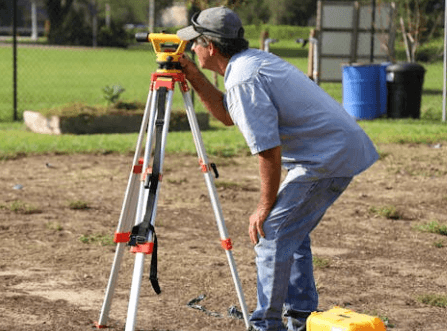Welcome to our comprehensive guide on “Increase Your Land Intelligence in Florida.” Whether you’re a seasoned landowner, a new property investor, or someone with a keen interest in the vast landscapes of the Sunshine State, enhancing your land intelligence is crucial. This blog aims to provide you with ten practical and insightful tips to increase your land intelligence in Florida and make informed decisions that will benefit you in the long run. From understanding the unique environmental ecosystems to navigating the legalities of land ownership in Florida, get ready to master your terrain with confidence and savvy.
Few real estate investors have mastered the Florida landscape as thoroughly as Steve Daria and Joleigh. Each brings a unique perspective, leveraging their deep understanding of local markets, climate challenges, and zoning laws to outmaneuver the competition. Their collective wisdom underscores the importance of continuous learning and networking to increase one’s land intelligence in this dynamic state.
Key Points
- Learn About Zoning Laws: Zoning laws determine how land can be used, such as for residential, commercial, or agricultural purposes. Understanding these laws is essential to making smart decisions and increasing your land intelligence in Florida.
- Study the Local Market: Research current land prices and trends in the region you’re interested in. This will help you spot opportunities and avoid overpaying for a property.
- Analyze Soil and Terrain: Check the soil quality and elevation of the land to ensure it suits your intended use. For example, some terrain may be ideal for farming, while others are better for building structures.
- Understand Environmental Restrictions: Florida has unique environmental rules to protect wetlands and wildlife. Knowing these restrictions can save you from future issues and ensure your land usage complies with local regulations.
- Connect with Experts: Build relationships with real estate agents, surveyors, and land experts familiar with Florida’s terrain. Their insights can help you navigate the process and make smart decisions about the land.
Understanding Florida’s Landscape: A Brief Overview
Before you plunge into intricate details to increase your land intelligence in Florida, you must grasp Florida’s broad geographical spectrum.
Florida is renowned for its significant areas of wetlands, where land meets water in a captivating dance of interdependence. The state’s diverse landscapes encompass:
- Beaches and Coastlines: Florida boasts some of the most sought-after beachfront properties in the nation, with miles of sandy shores and crystal-clear waters.
- Everglades and Wetlands: “The Everglades is a UNESCO World Heritage Site renowned for its distinct ecosystem.”Wetlands in Florida play a significant role in flood control and maintaining water quality.
- Urban and Rural: Floridian landscape is not just about nature reserves. Understanding the division between urban and rural land is vital for developers and community planners.
- Agricultural Land: The state is a critical player in U.S. agriculture, meaning vast areas are devoted to farming and ranching across its interior.
1. Connect with Local Land Professionals
To start your journey into better understanding Florida land, there is no substitute for local knowledge. Connect with realtors specializing in land sales, environmental consultants, and land surveyors.
These professionals will provide insights into property lines, zoning laws, and environmental regulations and offer a local perspective that sharpens your investment.
Realtors specializing in land sales possess intimate knowledge of local market dynamics, property values, and emerging trends, offering invaluable insights into potential investment opportunities.
Environmental experts play a crucial role in assessing the ecological suitability of land for development, conducting thorough studies to identify potential hazards or regulatory constraints.
Their expertise in navigating environmental regulations and permitting processes ensures compliance and minimizes risks associated with land development projects.
Additionally, land surveyors provide essential information about property boundaries, easements, and topographical features, ensuring accuracy and clarity in land transactions and development plans.
2. Explore Land Use Regulations
Every inch of land in Florida is governed by land use regulations set by state and local governments. Zoning laws, environmental impact studies, and agricultural exemptions play into land use.
Understanding these regulations keeps you on the right side of the law and offers pathways for potential development or conservation strategies.
Exploring land use regulations in Florida is essential for real estate professionals to navigate the complexities of land development responsibly and effectively.
Real estate professionals can ensure legal compliance and identify opportunities by understanding zoning laws, environmental regulations, land use requirements, and agricultural exemptions.
3. Survey the Land and Assess Its Topography
Not paying attention to due diligence in land surveys and understanding topography can lead to costly mistakes.
Investing in a professional land surveyor to map out your property ensures that the land’s features are accurately assessed, avoiding pitfalls in development or discovering hidden gems like streams or unique terrain elements.

4. Comprehend the Impact of Climate and Natural Disasters
Florida’s climate is inclement at best and treacherous at worst. Familiarize yourself with hurricane-prone areas, flood zones, and other natural disaster risks that could impact your land investment.
This understanding dictates insurance prerequisites and shapes your risk assessment when valuing property.
5. Investigate the Land’s Soil Quality
From sandy beaches to the fertile soil of central Florida, the quality of the land’s soil is a critical factor for various land uses.
Farmers and developers alike should understand the implications of soil composition on construction, farming, and environmental sustainability.
Additionally, knowledge of soil quality can inform agricultural practices, irrigation strategies, and crop selection for rural land, maximizing productivity and minimizing ecological impact.
Investigating the land’s soil quality is essential for making informed decisions about land use, development potential, and environmental stewardship.
6. Analyze Historical Land Data and Trends
To further increase your land intelligence in Florida, glean insights from historical land data, including past sales, growth trends, and demographic shifts, providing context for the current market.
Understanding historical trends can be a game-changer in Florida, where transient populations and high tourism numbers influence land value.
Analyzing historical land data and trends is a foundational step in strategic decision-making for real estate professionals in Florida.
By delving into past sales records, growth patterns, and demographic shifts, professionals gain valuable insights into the market’s trajectory and the factors shaping it.
For instance, examining historical sales data allows for identifying pricing trends, fluctuations, and patterns in different geographic areas and property types.
Moreover, analyzing demographic shifts, such as population growth, migration patterns, and changes in household composition, offers valuable context for assessing demand for housing, commercial properties, and amenities.
In Florida, where transient populations and high tourism numbers play significant roles in influencing land value, historical data analysis becomes even more critical for anticipating market dynamics and making informed decisions.
7. Pursue Environmental Studies
Florida’s unique ecosystems call for special consideration.
Engage in environmental studies to assess the potential impact that development or conservation strategies might incur.
This step is crucial for wetlands, endangered species habitats, and coastal properties.

8. Learn About Land Conservation and Tax Programs
Becoming acquainted with Florida’s various land conservation programs can benefit tax breaks and long-term property management.
Conservation Easements or the Rural and Family Lands Protection Program offer financial incentives and environmental stewardship satisfaction.
9. Network with Local Communities and Stakeholders
Real estate doesn’t exist in a vacuum—it’s a vibrant part of the community it serves. Networking with residents, business owners, and community organizations can provide valuable cultural insights and lead to potential land development partnerships.
Overall, networking with local communities and stakeholders is not just about transactional benefits—it’s about building mutually beneficial relationships, understanding the needs and aspirations of the community, and creating real estate developments that contribute positively to the area’s social, economic, and cultural fabric.
10. Keep an Eye on Technological Advancements
The tech world isn’t just for cities; it’s impacting land management, too. From GIS mapping technologies to land-use planning software, staying on top of these advancements can streamline your operations, enhance decision-making, and keep you at the forefront of land intelligence in Florida.
Conclusion
Like Florida’s beach’s shifting sands, to increase your land intelligence in Florida is continuous. Following these ten ways will increase your understanding of Florida’s land and pave the way for a prosperous and impactful engagement with this distinctive slice of American geography.
The pursuit of land intelligence is rewarding. It guides you through the esoteric labyrinths of regulations, the majestic tapestry of nature, and the vibrant human tapestry that makes Florida’s land unique. Harness this guide as your compass, your sextant in the ocean of real estate opportunities that await in the land of sunshine and dreams.
In Florida, mastering your terrain is not just a pursuit; it’s a legacy in the making. The Sunshine State offers many opportunities for those ready to take on the challenge. Happy exploring!
